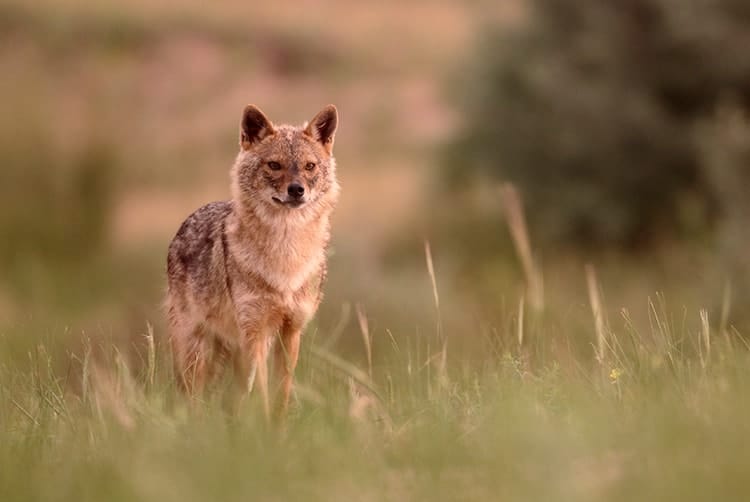Modern Horses ‘Remember’ Their Original Predators’ Voices
- Topics: Behavior, Genetics, Horse Care, Welfare and Industry

True to the kinds of predators that roamed their ancestral regions, Polish Konik horses showed fear reactions mainly to wolf sounds, whereas Arabian horses reacted more strongly to panther sounds, said Iwona Janczarek, PhD, of the Department of Horse Breeding and Use in the Faculty of Animal Sciences and Bioeconomy at the University of Life Sciences, in Lublin, in Poland.
While domestic horses rarely need such a protective instinct today, they’ve maintained fear reactions to loud sounds, fast-moving objects, aggressive dogs, and even routine management procedures such as vaccinations and trailering, all of which generally evolved from their antipredator responses, said Janczarek’s study co-author and colleague Anna Stachurska, PhD.
But that doesn’t mean modern, safely guarded domestic horses would use those responses to protect themselves from an actual predator, she explained. It’s possible that selective breeding for calm horses might have hampered modern horses’ ability to recognize such threats.
The Study
To test horses’ innate reactions to different predator threats, Stachurska and her fellow researchers worked with 20 pregnant broodmares aged 5 to 15 living on two farms in Poland, where the horses have never faced predators. The 10 mares on one farm were purebred Arabians, and the 10 on the other farm were purebred Polish Koniks.
The scientists equipped all mares with heart rate monitors during their pasture turnout time, and they broadcast different sounds from loudspeakers: panther growls, wolf howling, and jackal cries. They emitted the sounds from a single speaker and, later, from four speakers at each corner of the pasture to make a “group” predator effect, for five minutes at a time over several days.
They found that the mares had no cardiac changes when they heard jackals—which don’t attack horses—even though their cries are high-pitched, Stachurska said. As for the wolf howls, the Arabian mares didn’t show cardiac changes, whether they heard the wolves as individuals or as a pack. Meanwhile, the Konik mares had no significant reactions to individual panther growls, although they reacted mildly when they heard panthers as a group.
By contrast, the Arabian mares had stronger heart rate variability changes when they heard the panthers growl, either as individuals or as a group, she said. And in parallel, Konik mares showed more fearful reactions, as evidenced by their heart rate variability, to the wolf howls, whether individual or pack.
Memory: It Might Be in the Genes
The results point to a probable innate response to predator sounds that might arise from “genetic memory”—meaning the horses’ genes “remember” what their ancestors knew, even if the animals haven’t needed that information for generations.
While many domestic horses probably do experience stress when they hear certain predator sounds, this isn’t necessarily a bad thing, said Stachurska. Although more research is necessary, it could mean the horses react in a way that might protect them if they’re confronted with predators
Have We Bred Vulnerable Horses?
As carnivore rewilding (reintroduction) efforts develop in Europe horses might have to face occasional predator attacks. Would they know how to recognize the danger?
“We thought it would be interesting to check whether horses (often released into pastures near forests or living on reserves) have retained their natural abilities to avoid predators,” Stachurska said. “Fortunately, it seems that they have—at least with regard to their original predators.”

Related Articles
Stay on top of the most recent Horse Health news with

















